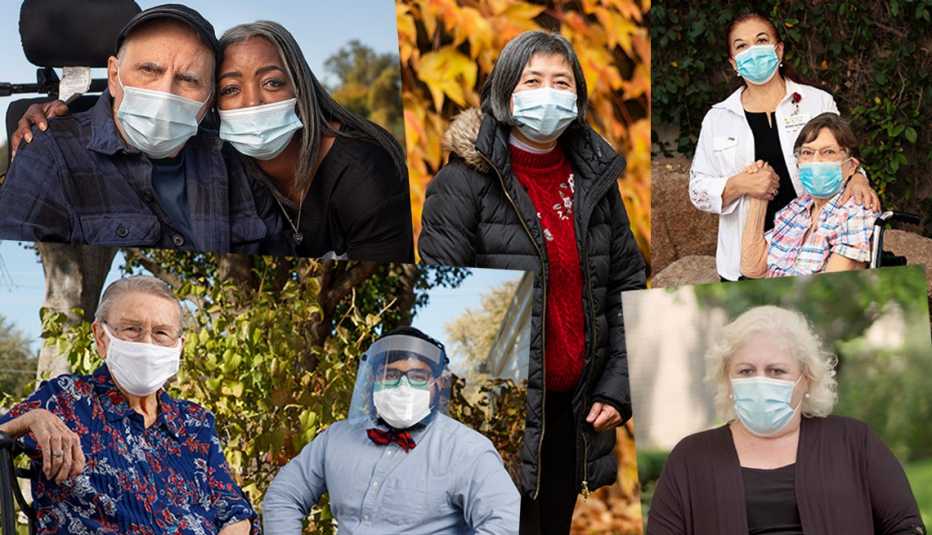AARP Hearing Center
Nursing home worker Adelina Ramos identifies with colleagues who are skeptical about getting the COVID-19 vaccine because she once was, too.
"I was, like, uh-uh. I don't trust the vaccine,” Ramos, 35, remembers thinking before it became available at Greenville Center, the Rhode Island nursing home where she's worked for five years. “I was having all those crazy thoughts that everybody else had."
But the certified nursing assistant (CNA) has since become an advocate for vaccination among her coworkers. Her labor union has asked her to speak with other CNAs who have not yet been vaccinated. She even testified in Congress about the lack of vaccine education for her and her colleagues.
Ramos takes her advocacy seriously. She understands what's at stake, because she has witnessed scores of residents — who she says felt like family to her — fall sick and has seen two dozen of them die last year.
Nationwide, COVID-19 has claimed the lives of more than 180,000 residents and staff of nursing homes and other long-term care facilities. There are roughly 550,000 CNAs working in nursing homes across the United States, providing over 90 percent of the direct patient care, according to the National Association of Health Care Assistants (NAHCA).
An informal survey of CNAs conducted late last year, before the vaccine rolled out, showed 72 percent were skeptical about getting vaccinated, says Lori Porter, CEO of the NAHCA. But more recent reports show a growing acceptance. A survey from the Kaiser Family Foundation and The Washington Post, for instance, showed that by early March, half of health care workers in nursing homes or assisted living facilities had received a COVID-19 vaccination.
But there's still a long way to go to vaccinate the rest, leaving long-term care facility residents vulnerable in the meantime. A March outbreak at a Kentucky nursing home killed three residents, including one who was vaccinated, and was traced to an unvaccinated employee. Now, a growing number of facilities have started requiring workers to get vaccinated; those who don't face termination.
'I want to protect them'
As a woman of color and an immigrant, Ramos can relate to her coworkers’ fears of being used for experimentation. The pace of the vaccine's development made her nervous, too. Politics bleeding into science and mixed messages from top officials stoked her doubts. And the misinformation that spread online, no matter how outlandish — “The vaccine will affect your DNA!” she laughingly recalls — didn't help.







































































